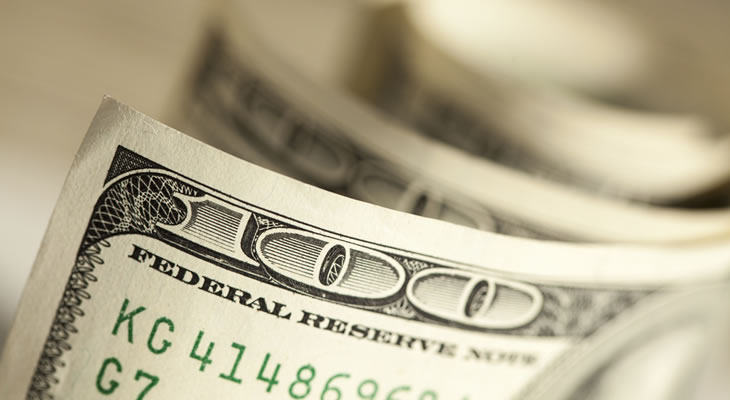In spite of the Trump administration losing some of its credibility when it failed to push through its healthcare bill the mood towards the US Dollar soon picked back up.
Even though the abilities of the administration remain in doubt markets remain somewhat optimistic over the prospect of promised fiscal stimulus measures.
This helped to put the ‘Greenback’ on a stronger footing ahead of the weekend, particularly as the fourth quarter gross domestic product bettered expectations to accelerate from 1.9% to 2.1%.
Comments from members of the Federal Open Market Committee (FOMC) also encouraged greater confidence in the US Dollar.
While the Fed still looks likely to take a gradual approach to raising interest rates the US Dollar Pound exchange rate capitalised on the moderately hawkish tone.
An uptick in the personal consumption expenditure deflator could offer the ‘Greenback’ further support.
If inflationary pressure within the US economy continues to pick up this would increase the odds of the Fed tightening monetary policy at a faster pace.
So long as the domestic economy demonstrates robust health the detrimental impact of political uncertainty is likely to be limited.
However, if there are further signs that Trump’s spending bill will not achieve the necessary supermajority in Congress then USD exchange rates could come under renewed pressure.
Although the GfK consumer confidence index did not fall as anticipated in March this failed to shore up the Pound on Friday.
Investors were instead discouraged to find that the Nationwide house price index had clocked in its first monthly contraction since June 2015.
With the domestic housing market starting to lose steam worries over the outlook of the UK economy intensified.
Confidence in Sterling is likely to remain muted for the foreseeable future, given that tensions are already on the rise between the UK and EU before Brexit negotiations have even started.
With consumer sentiment and household earnings expected to come under increasing pressure in the coming months the USD GBP exchange rate could maintain its upside bias.
As Marc Chandler, Global Head of Currency Strategy at BBH, noted:
‘In the UK, while inflation may not peak until the end of Q2 or early Q3, the real economy is set to slow, and this will likely prove sufficient to keep the BOE on hold. The lone dissent from steady policy in March, Kristin Forbes, will step down at the end of her three-year term in June. Poor wage growth suggests a headwind on demand and a check on price pressures going forward.’
If March’s raft of UK PMIs also prove disappointing then the Pound could extend its slump, with any weakness in domestic data likely to exacerbate worries over the impact of Brexit.


Comments are closed.